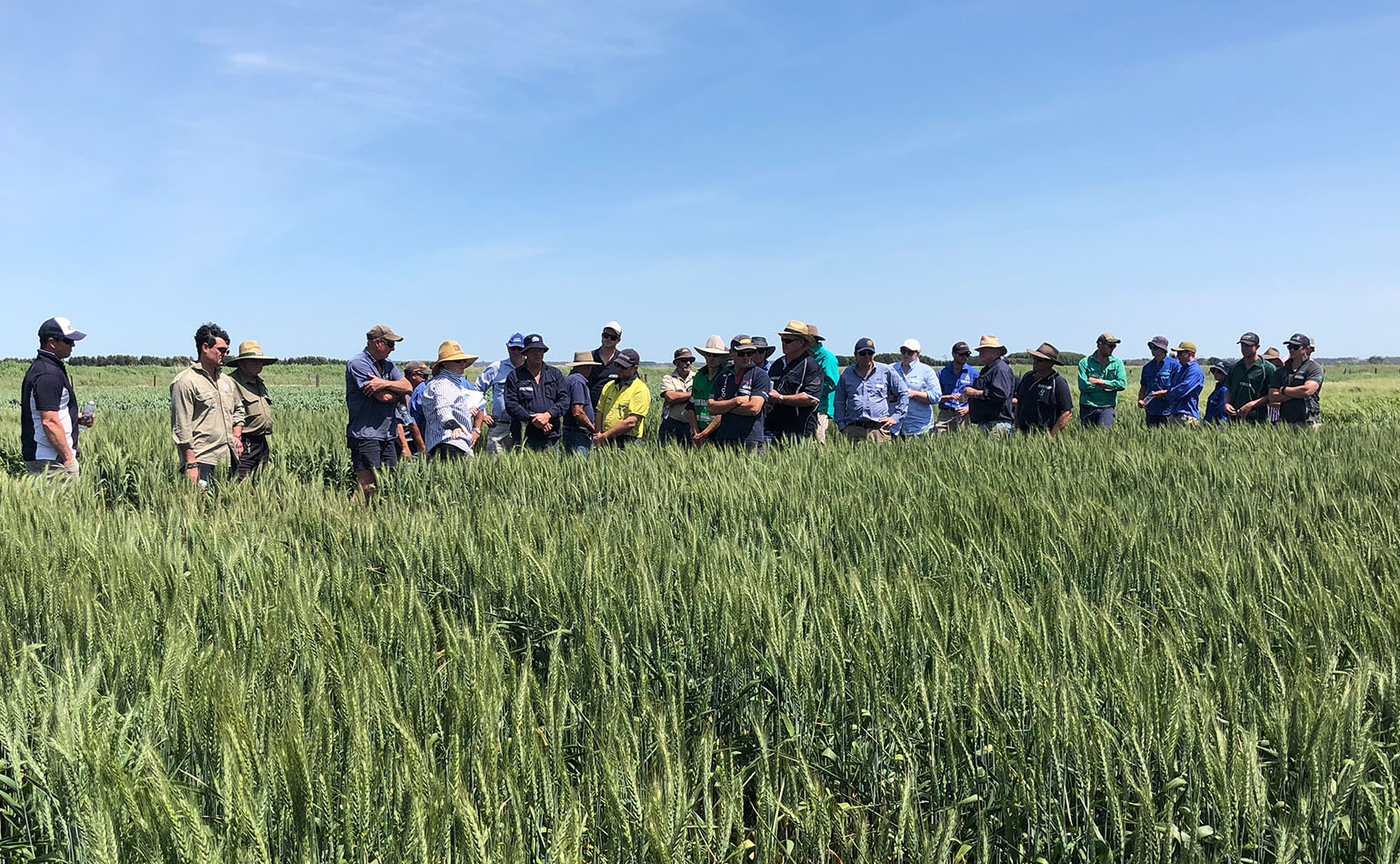The Soil CRC’s Communications Manager caught up with Meg Bell, CEO of MacKillop Farm Management Group, for a five-minute chat.
Tell us about MacKillop Farm Management Group
MacKillop Farm Management Group (MFMG) operates in the south east of South Australia. It began life as a branch of Victorian grower group Southern Farming Systems (also a Soil CRC Participant). There are similarities between the two groups because they both operate in high rainfall zones with winter dominant rainfall.
In the early days, most of the work focused on raised bed cropping systems and white clover growing. In 2006 the MacKillop Group became a separate entity. Now, over 20 years old, we have around 330 members and 30 sponsors and trial sites spread throughout the south east of South Australia and into western Victoria. We cover over 2 million hectares of land across the Limestone Coast of South Australia and western Victoria.
What area and type of farming do you cover?
MFMG members mostly run mixed farming enterprises. They grow crops such as wheat, barley, canola and beans under both irrigation and dryland, as well as produce pasture seed and livestock – both cattle and sheep.
The land is generally very productive, with a winter-dominant high rainfall pattern. Some of the farmland was drained in the late 19th century.
What is the focus of MFMG?
We have recently shifted our focus from on-ground research to delivering extension and driving adoption in the region. We have great industry contacts who don’t necessarily have good links to farmers directly, so we are able to be that direct link with the farmers.
Ten years ago, MFMG was doing a lot of research. Now we are more involved in demonstration style research. We are not necessarily researching new or ground-breaking issues, but we are demonstrating existing research to see if it works in our region. MFMG still does on-farm research which is often followed by replicated trials. It is a matter of adapting the research to our own climate and demonstrating how it works in the Limestone Coast and western Victoria.
We partner with research organisations to help them get their research out and enable adoption of these research outcomes in our area. One of the things that MFMG values is using a variety of methods to share research with our members. We try not to just hold a one-day workshop where all the information is dumped on farmers. We’ve seen again and again that farmers need to hear information more than once and in a variety of ways before they will adopt a new practice. We work with that by delivering information in a variety of ways, including crop walks, field days, social media, reports, emails and our online library of resources.
What type of soil does the region have?
One of the biggest issues that farmers in this region face is the immense variability in soils. They are all derived from the way the landscape was first formed from volcanoes in the region, and the topography that developed over thousands of years.
We have very sandy soils, black clay peat, loamy soils, grey clay, acidic soils, alkaline soils and waterlogged soils. Sometimes these can occur in the same paddock which is obviously a real challenge.
Why did MFMG become a participant in the Soil CRC?
Soil is so important. It is obvious, but you can’t grow anything without soil! Soil constraints can have the largest impact on our food production system, so we need to understand what those constraints are and how to treat them.
Because of the diversity of soil types and constraints that our members face, we have always had a strong focus on soil and soil research. We are involved with many different soil research projects, so it important that we are part of the Soil CRC. It gives us access to important soil research and outcomes that we can apply to our region and supply to our members. We want to keep delving deeper, to find answers to the questions we don’t know.
There is a long history of excellent research that has come from CRCs and I think the Soil CRC will do the same. Like the Soil CRC, MFMG has a key focus on collaboration. We really value collaborating and sharing information with others, so there is a synergy for MFMG to be part of the Soil CRC.
Soil CRC Projects that MFMG are involved in

